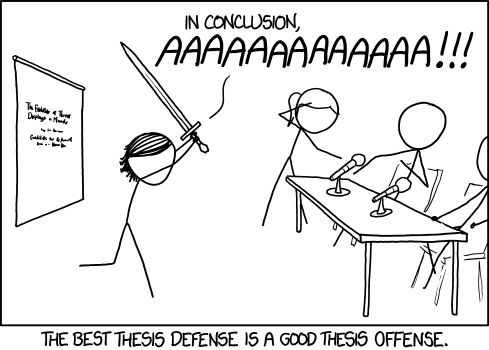The Fourth Option
I’ve heard there are three common responses to anxiety or fear: freeze, fight or flight. Now, my PhD is in pure maths, so I have no idea if that’s 100% right, but it got me thinking about stress over questions in the viva. If an examiner asks a tough question or makes an observation that isn’t in line with the way you think, you could:
- Freeze: mind goes blank, no idea what to do, just hold still and hope that they move on.
- Fight: go to war with them, take no prisoners, do everything to bring their arguments to their knees.
- Flight: try to umm and ahh your way free, take evasive action and hope you get out.
Fortunately, there’s another option: Figure it out. Take a pause, think about what’s actually been said; ask some more questions if need be. Make sure you understand what your examiner has said. Ask them why. Get as much information as you can, and then try to resolve the situation.
No need to panic, battle or run. Just think.
